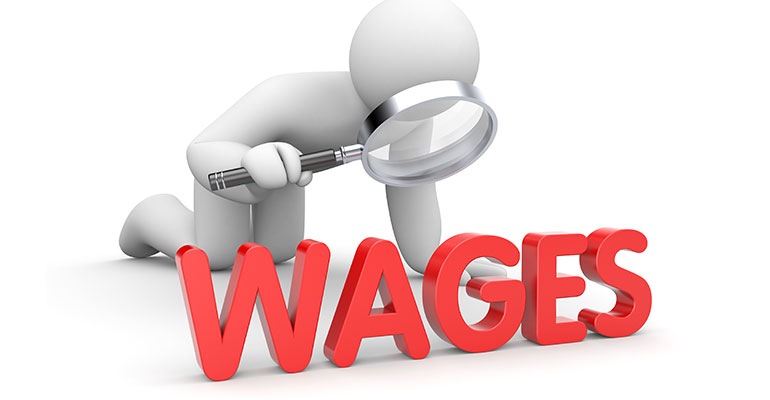
Wage garnishment can be a stressful experience, leaving you wondering who is taking a portion of your hard-earned money. It is important to understand the reason behind wage garnishment and how to identify who is garnishing your wages. This post will provide you with a step-by-step guide on how to find out who is garnishing your wages.
Understand What Wage Garnishment Is
Wage garnishment is a legal process in which a court orders your employer to withhold a portion of your earnings to pay a debt. It can be initiated by creditors or government agencies, such as the Internal Revenue Service (IRS) or student loan providers. The amount that can be garnished varies by state law and the type of debt.
Check Your Pay Stubs
The first step to identifying who is garnishing your wages is to review your pay stubs. Your pay stub should show the amount of money that has been deducted from your earnings. Look for a line item that says “garnishment” or “wage attachment.” This will give you an idea of how much money is being withheld and who might be garnishing your wages.
Review Court Documents
If you are unsure who is garnishing your wages, you can request court documents from the court that issued the garnishment order. This will provide you with information about the creditor or agency that is garnishing your wages, as well as the amount of the debt.
Contact Your Employer
Your employer is required by law to notify you when they receive a garnishment order. If you have not received any notice, contact your employer’s human resources or payroll department. They will be able to provide you with information about the garnishment and who is garnishing your wages.
Check Your Credit Report
If you have outstanding debts, creditors may attempt to garnish your wages to collect on the debt. Check your credit report to identify any outstanding debts that may be the cause of wage garnishment. Your credit report will show the name and contact information of the creditor, which can help you identify who is garnishing your wages.
Contact The Garnishing Agency or Creditor
You should get in touch with the creditor or agency if you’re still unsure who is deducting money from your paycheck. They will have knowledge of the debt and the garnishment order and can give it to you. It is important to keep a record of all communication with the garnishing agency or creditor, including the date and time of the conversation and the name of the person you spoke with.
Seek Legal Advice
Seek legal counsel if you think that your wages are being garnished unlawfully or for a debt that you do not owe. A lawyer can assist you in understanding your legal options and might be able to work out a settlement with the creditor or garnishing company.
Check Your State Laws
As mentioned earlier, the amount that can be garnished varies by state law. It is important to check your state’s laws to understand the maximum amount that can be garnished from your wages. Additionally, some states have specific procedures that must be followed before a wage garnishment can be initiated, so familiarizing yourself with your state’s laws can be helpful.
Look for Exemptions
Certain types of income may be exempt from wage garnishment, such as Social Security benefits or worker’s compensation. Check your state laws and the type of debt to see if any exemptions apply to your situation. If you believe that you are being garnished for exempt income, seek legal advice.
Keep Track of Payments
Keep track of your payments and the remaining balance owed if you are making payments toward the debt that is being garnished. Verify that the agency or creditor who is garnishing your wages is recording your payments correctly and decreasing the balance owed. Contact the agency or creditor right away to address any discrepancies you find.
Consider Debt Consolidation
Debt consolidation may be an option if your wages are being garnished for several debts to help you manage your debt and possibly stop the garnishment. To manage payments and possibly lower interest rates, debt consolidation involves combining several loans into one.
Negotiate a Payment Plan
If you cannot afford to pay the debt in full, negotiating a payment plan with the garnishing agency or creditor may be an option. This can allow you to make smaller payments over time and potentially avoid wage garnishment. Be sure to get any payment plan agreement in writing to avoid confusion or disputes.
Stay Up-to-Date on Your Finances
To prevent future wage garnishment, it is important to stay up-to-date on your finances and avoid falling behind on payments. Create a budget and prioritize debt repayment to ensure that you are staying on track. Consider reaching out to a financial advisor or credit counselor for additional guidance and support. Tax resolution/consultation services will also be very helpful.
Wage garnishment can be a difficult and stressful experience. However, understanding the reason behind the garnishment and identifying who is garnishing your wages can help you take control of the situation. By following these steps, you can identify the creditor or agency that is garnishing your wages and take appropriate action to resolve the debt.
